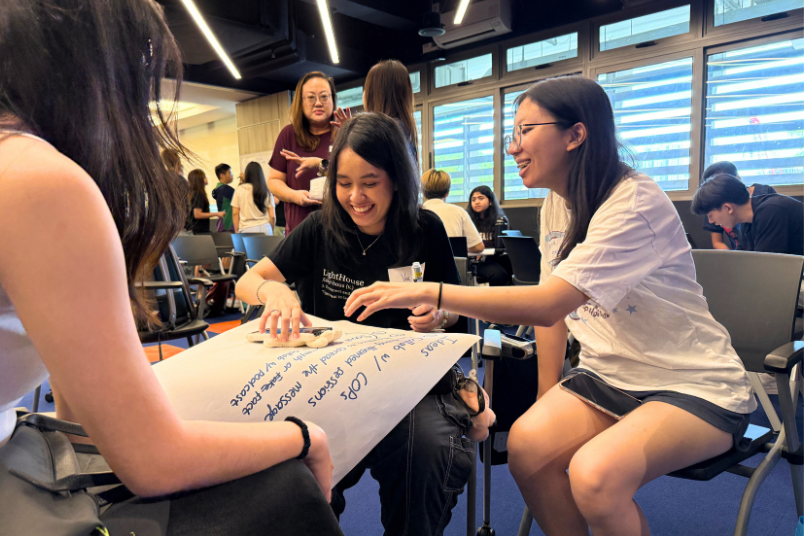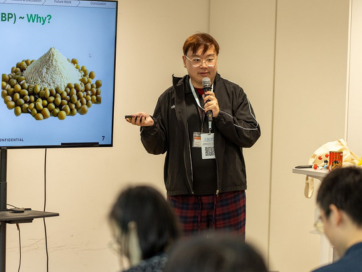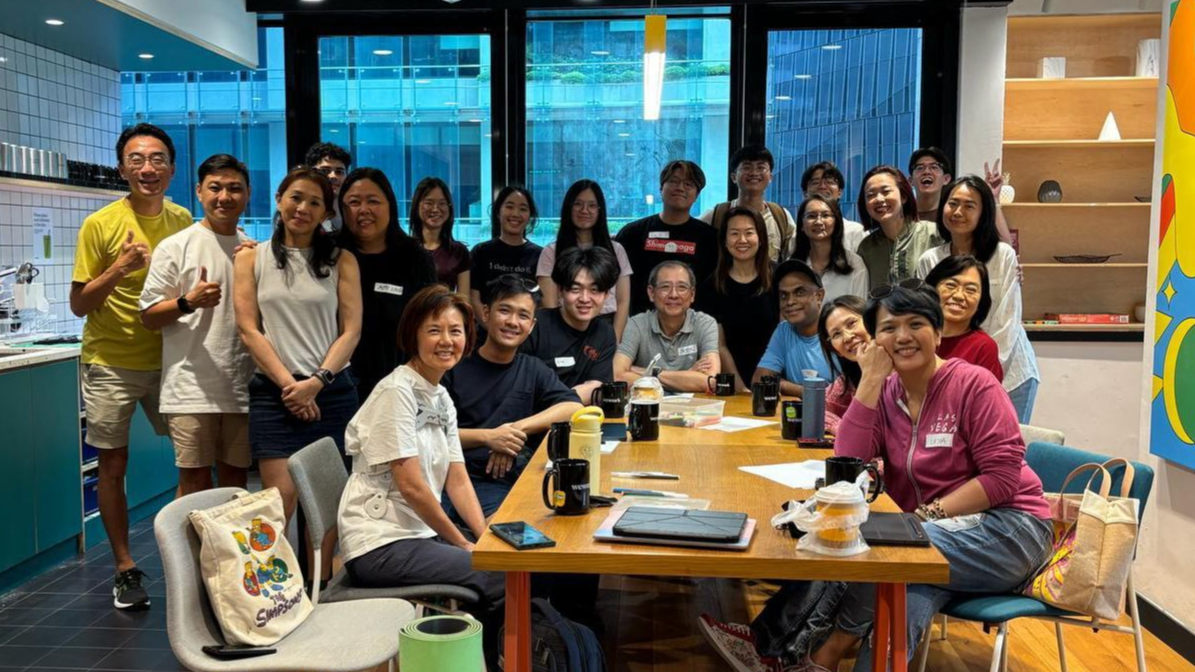On 18 October 2025, the NUS Office of Student Affairs convened 10 volunteers from the NUS National Police Cadet Corps (NPCC), and 36 resident-student ambassadors from all 18 hostels to champion a campus culture of vaping prevention. Designed for action, the workshop equipped student leaders with ground-up initiatives to make NUS safer and ensure support is easy to access. The effort was delivered in partnership with NUS Campus Emergency and Security (CES), the National Council Against Drug Abuse (NCADA), and the Singapore Anti-Narcotics Association (SANA), aligning campus and national expertise behind a student-led movement for a vape-free NUS.
Setting the preventive frame
The programme opened with remarks by Assoc Professor Ho Han Kiat, who set a clear preventative frame for the morning. He said that effective prevention work often feels invisible and, at times, unpopular because it averts crises before they manifest. Using a thought experiment drawn from 9/11 attacks, he illustrated how decisive preventive action can be misunderstood when success means “nothing happens”, yet such foresight is what protects communities from downstream harm.
He cautioned against the slippery slope observed in places where drug controls have softened and the consequences have cascaded into widespread addiction crises. For a small nation like Singapore and a tight-knit campus community, he stressed, the cost of inaction is too high and prevention is the most responsible path. Prof Ho also emphasised that peer influence is the engine of campus norms and that as anti-vaping student ambassadors, as positive peer role models, are uniquely positioned to shift attitudes, and create a safer, healthier environment for their friends.
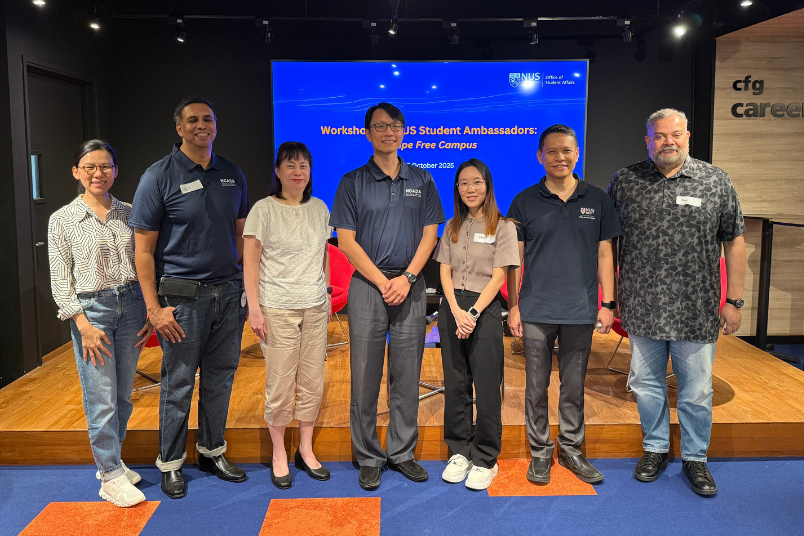
Following this, NUS CES Programme Manager, Mr Lee Yong Jie, oriented participants to how the workshop fits within the University’s broader safety and prevention efforts and how student-led initiatives complement campus policies and partner capabilities. He outlined the goals for the session, the roles of OSA and CES and the support available to student ambassadors as they take ideas back to their residential communities.
Myths, health and addiction clarified
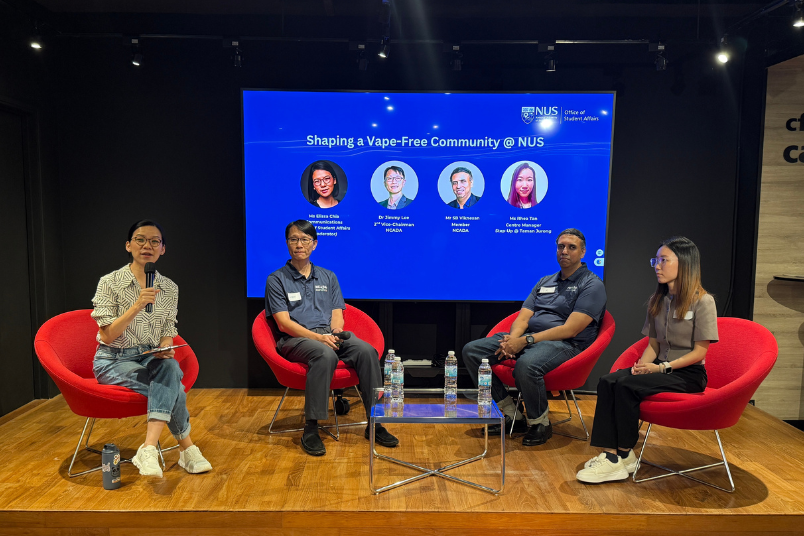
A panel discussion, “Shaping a Vape-Free Community @ NUS,” brought together Dr Jimmy Lee (2nd Vice-Chairman, NCADA), Mr SB Viknesan (Council member, NCADA; Principal Counsellor, National Addictions Management Service), and Ms Rhea Tan (Centre Manager, Step-Up @Taman Jurong, SANA), and was moderated by Elissa Chia (OSA). The conversation tackled the realities of vaping, the social and community ripple effects, and what effective prevention messaging looks like for a student audience. The panellists also touched on about the vulnerability of the lungs to damage and the difficulty of reversing harm once established, as well as the addictive nature of vaping that can entrench habits quickly.
Dr Lee addressed the common misconception, often amplified by social media portrayals, that vaping is a “healthier” or harmless alternative to smoking, and they called for better education that moves beyond deterrence alone toward credible, peer-delivered messages that resonate with values like care for friends and family.
Building on this, the panel explored outreach strategies, noting the power and limits of social media; while platforms like TikTok can extend reach, there remains a perceived gap between smokers and vapers that may not be bridged online alone.
To illustrate how story-driven engagement can deepen conversations, Mr Viknesan highlighted NCADA’s collaboration with filmmaker Royston Tan on Singapore’s first interactive anti-drug film, “HIGH.” The film follows the protagonist and lets viewers make choices on his behalf, revealing different endings and consequences, an approach designed to spark reflection and dialogue among youths. The consensus pointed to multi-channel engagement that combines digital content with in-person conversations, community involvement, and support systems that meet students where they are.
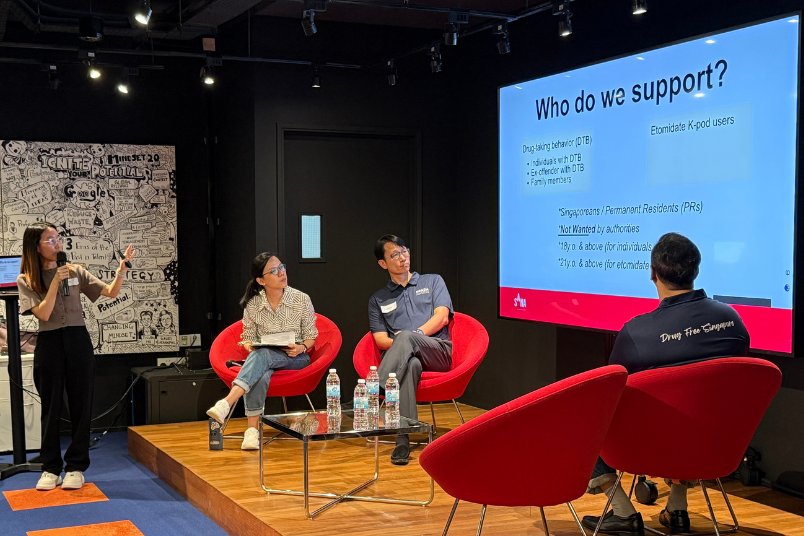
From insight to implementation
The 45-min student-led breakout session translated these fresh insights into concrete hostel-based plans through interactive discussion and idea-sharing facilitated by NUS NPCC. Student ambassadors co-developed outreach concepts tailored to their residential settings.
One group proposed reframing posters away from punishment-focused messaging toward education and care-centred narratives, and to pair this with a stronger social media presence featuring TikTok videos and street-style interviews to debunk myths and make the conversation relatable.
Another strand focused on building sustainable capacity by forming project taskforces within Residential Colleges, intentionally involving seniors through existing senior retention projects so initiatives can be piloted, refined, and handed over year to year.
Participants reflected on why this advocacy work matters at a personal and community level. First year FASS student Zeng Zhi, from NUS NPCC and a resident of LightHouse, said that the most powerful reminder he took away was that the person who gets hurt is often “your own loved ones.” This perspective shifts the focus from personal risk to caring for loved ones: choosing not to vape helps protect your friends and family as well as yourself. Echoing this, Year 1 Business student Esther Toh from Acacia College warned that vaping’s influence can spread quickly when misconceptions go unchallenged: if we aren’t informed about its harms, it becomes a chain effect. “It not only affects you but the people around you,” she emphasised.
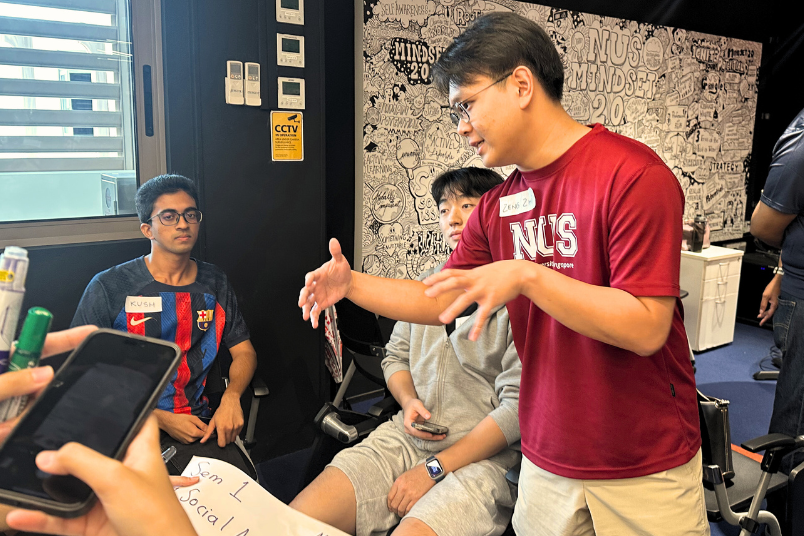
Other students also relate well with the theme of prevention over cure, recognising that credible peer voices can defuse misconceptions before harm sets in. “Many of my peers view vaping as a ‘healthier alternative’ to smoking, largely because of how it’s framed in the media, and current measures haven’t effectively challenged that misconception,” said Don Han, a Year 2 Business-CNM student who is also Residential College 4 Sports Director. “Today’s discussion made it worthwhile to unpack these myths and understand why they persist.”
From plan to momentum
As the workshop drew to a close, what emerged was more than a plan, it was momentum. With clear roles, partner support from OSA, CES, NCADA and SANA, and student-led ideas ready to pilot, ambassadors are committed to meet their peers with empathy.
The next phase will see activation campaigns in AY25/26 Semester 2 including short-form videos rolled out across all 18 hostels, anchored by in-person conversations and taskforces that sustain the effort year to year. In turning insight into practical action, our community is laying the groundwork for a vape-free NUS, one that is built on prevention and partnership and the power of peer leadership.
For more information about anti-vaping, visit nus.ed/stopvaping.
Share:
Contributor
Office of Student Affairs


